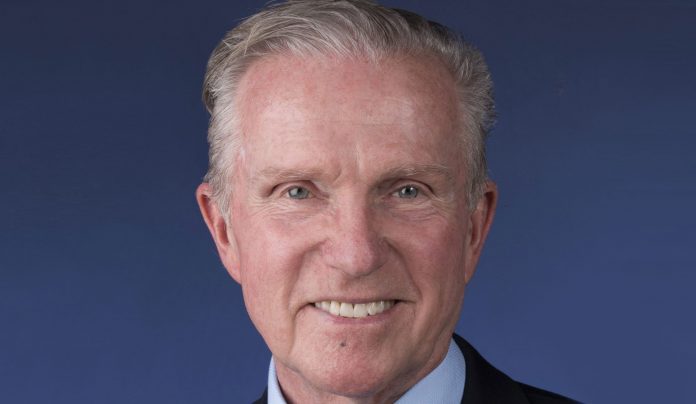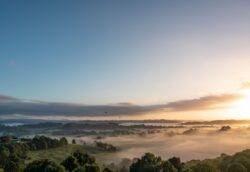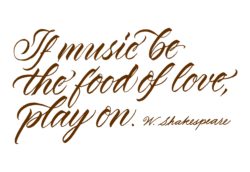The Twitter phenomenon #CrazySocks4Docs was created by Melbourne, Australia cardiologist Dr. Geoff Toogood, who speaks and writes openly about his lived experience with anxiety and depression. CrazySocks4Docs Day is held on the first Friday of June each year. This global occasion is dedicated to raising awareness of the mental health of all doctors and health practitioners around the world and keeping doctors safe. I covered last year’s event in this blog: The Magnitude of Lived Experience.
I’ve been thinking about CrazySocks4Docs a lot since the effects of the COVID-19 pandemic first hit several weeks ago. Mental health professionals, including many bloggers at this site, have been speaking out and writing about the many ways in which we have a role to play. Here’s what I’ve been doing. Toward the end of March, New York Governor Andrew Cuomo designated the 375-bed University Hospital of Brooklyn, where I work, a COVID-19 only facility. Anticipating a surge of critically ill patients for our frontline staff, psychiatrist colleague Dr. Ramaswamy Viswanathan and I started offering weekly virtual support groups. One is for hospitalist physicians and another is for emergency medicine physicians. There are many issues and themes that have arisen1 but I’d like to highlight only a couple here that dovetail with the mission of CrazySocks4Docs.
Dr. Toogood writes that he faced stigma and discrimination at many levels when he was ill and was determined that once recovered, he would create an awareness movement to break down the stigma faced by health professionals. In our support groups, in the early weeks, physicians spoke openly as they described their anxiety about contracting the virus, about getting sick themselves and possibly dying, about transmitting the virus to their families at home, and about inadvertently infecting each other should their personal protective equipment fail. They admitted to feeling terrified, numb, and surreal. Some talked about feeling demoralized and depressed, but all were unambivalently committed to their work. Some used the phrase “This is my calling. This is what I’m trained to do.”
They expressed solidarity and camaraderie openly, including statements like “We’re a tight team here, we really care about each other” and “We’re like a family, united.” Although it’s hard to visualize a change in the facial movements because they’re all wearing masks during our virtual meetings, their emotions are palpable when their voices catch or they look away. Social distancing is the order of the day, but not psychologically. Nobody seems shy or embarrassed about their vulnerability, their humanness.
Coping with the volume of dying patients per shift has been really tough for the doctors. They’re grieving. Again, this is expressed with emotional and authentic language. There is little medical jargon or intellectualizing that is so common and normalized in medical settings. Here are some quotes: “My heart aches, my chest is so heavy and it gets heavier as the day goes on. I can’t wait to get all my equipment off and just weep.”
Another doctor said: “The last two days I think I’ve lost a pound, all tears, just crying, so sad for people who were my patients for such a short time. And their families.” Another spoke: “We all talk about how much we need a hug, but of course we can’t hold each other. But there is some relief in just saying it, or joking about air hugs.”
Seniority and rank seem to have disappeared in our groups. Attending physicians and residents talk about feelings like peers. They speak from their hearts and guts. One session, on the heels of the tragic loss of a beloved critical care specialist to the virus2, was replete with memories, warm anecdotes, and teary testimonials. Losing one of their own makes this nightmare even more terrifying—casualties aren’t just strangers; it also happens to us and those we love.
Is this a sea change?
Dr. Toogood is committed to reducing suicide rates among doctors and other health professionals around the world. He’s fighting stigma with his openness about his lived experience. We know that isolation is one of the drivers of suicide in doctors. But listening to how doctors are affected in their heroic work on the front lines of the COVID-19 epidemic gives me hope that barriers to openly sharing one’s personal distress are lowering.
CrazySocks4Docs Day is a virtual event held on one day a year, which reminds us of the daily importance of caring for the mental health of doctors and other health professionals, who are caring for all of us.
References
- Viswanathan R, Myers MF, Fanous A. Support groups and individual mental health care via video conferencing for frontline clinicians during the COVID-19 pandemic. Submitted for publication.
- Del Valle L. A community mourns a Brooklyn physician who died fighting coronavirus. CNN. May 20, 2020. Accessed May 28, 2020.
Dr. Myers is Professor of Clinical Psychiatry and immediate past Vice-Chair of Education and Director of Training in the Department of Psychiatry & Behavioral Sciences at SUNY-Downstate Medical Center in Brooklyn, NY. He is the author of 8 books, the most recent of which are “Why Physicians Die by Suicide: Lessons Learned from Their Families and Others Who Cared” and “The Physician as Patient: A Clinical Handbook for Mental Health Professionals” (with Glen Gabbard, MD). He is a specialist in physician health and has written extensively on that subject. Currently, Dr. Myers serves on the Advisory Board to the Committee for Physician Health of the Medical Society of the State of New York. He is a recent past president (and emeritus board member) of the New York City Chapter of the American Foundation for Suicide Prevention.
The views expressed on this blog are solely those of the blog post author and do not necessarily reflect the views of the Psychiatry & Behavioral Health Learning Network or other Network authors. Blog entries are not medical advice.
This post was first published on Psych Congress Network on 28 May 2020.










Living in a country where we have not had the same experience as has been written here, I value hearing about what our colleagues in other countries have been experiencing. It’s humbling and very warm reading. It’s quite beautiful to read the vulnerability shared.
Thank you Jennifer for your comments and reflections. Since writing this piece, I’ve witnessed even more transparency and authenticity in my colleagues and some trainees. This pandemic is affecting health professionals very deeply and giving them pause. “To Medicine with Love” is the perfect home that we all need right now. With love, Michael.